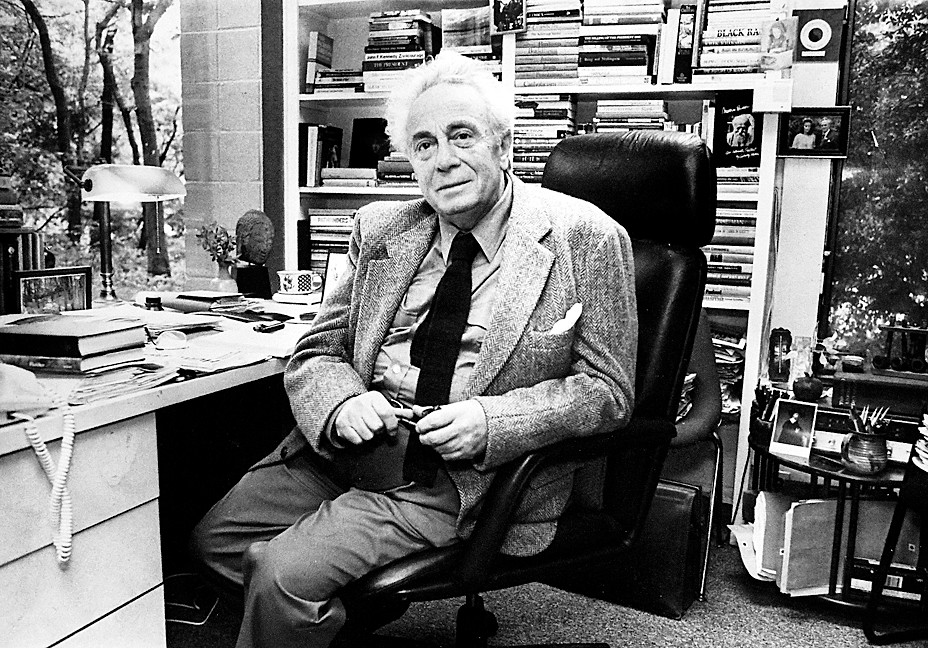Ethical Culture leader was mental health pioneer
Dr. Matthew Ies Spetter, founder of the Riverdale Mental Health Association and longtime leader of the Riverdale-Yonkers Ethical Culture Society, died on Dec. 30. He was 91.
Dr. Spetter dedicated his life to helping those in need, beginning long before he ever stepped foot in Riverdale. After seeing Nazis throw children into a truck from a Jewish orphanage in his native Holland, he joined the Dutch Resistance at the age of 23. He worked to help Jewish families escape from the Nazis and later worked with the Allied military intelligence before being captured, tortured and sentenced to death in 1943, according to a profile on Dr. Spetter that ran in a 1994 issue ofThe Riverdale Press.
“In Holland you were either on the side of the executioners or the victims,” he toldThe Press. “You had to make an existential choice.”
Two years later, weighing 68 pounds, he fled through the woods to escape the Buchenwald concentration camp, where the Nazis had taken him to shoot him.
He later testified as an Allied witness at the Nuremberg International War Crimes Tribunal. He was awarded the Resistance Cross by the government of the Netherlands.
“Spiritually, it was a sense of rescuing the human spirit,” Dr. Spetter told The Pressin 1994. “It gave you a sense of courage.”
After moving with his family to the United States in 1951, Dr. Spetter spent his life trying to lift the spirit of Riverdalians. Aside from serving as leader of the Riverdale-Yonkers Ethical Culture Society for 39 years, he worked as an associate professor of peace studies at Manhattan College, taught ethics at Ethical Culture Fieldston School, founded and served as a board member of the Riverdale Mental Health Association and fought for civil rights and humans rights. In the early 1960s, he organized a series of black-white dialogues in Riverdale to ease the tensions of the civil rights movement.
Though his books are still on the shelves at Ethical Culture and many members remember his presence there, perhaps his greatest impact on the area was in founding Riverdale Mental Health Association.
He told The Press in 1994 that RMHA grew, he said, “out of so many requests I was getting from families that were falling apart.”
Joyce Pilsner, longtime executive director of RMHA, said Dr. Spetter brought together people from all factions of the community to start the association, which began in a single room at the Riverdale Neighborhood House in 1959. Now, the successful not-for-profit provides behavioral healthcare to 2,000 people a year in the northwest Bronx, upper Manhattan and Westchester.
“He was an inspirational person,” Ms. Pilsner said. “He was a real leader and he had the ability to encourage other people to join him in efforts.”
Dr. Spetter worked as a foreign editor of the Dutch national radio news service, as well as one of the Netherlands’ largest weekly newspapers and as a correspondent for the BBC. Before coming to the United States, he received his masters from Leicester University in England. In the United States, he earned a PhD in social psychology from the New School for Social Research.
James White, the current leader of the Riverdale-Yonkers Ethical Culture Society, called Dr. Spetter a “brilliant humanist philosopher” and said the society still has copies of Dr. Spetter’s book, Man, the Reluctant Brother. He also authored The Courage to Stand Alone and To Deny the Night.
Mr. White said he remembers Dr. Spetter being so astonished by the “phenomenon of homelessness” in the 1980s that it inspired him to contribute to the work of the Kingsbridge-Riverdale-Marble Hill Food & Hunger Project, Inc.
Mr. White said Dr. Spetter also had a “delightfully playful sense of humor.”
“He went to Fieldston football games and he told me their cheer was, ‘strong like an eagle, mean like a vulture, fight, fight, fight, Ethical Culture,’” Mr. White said, laughing.
Daughter Ruth Spetter remembers her father as someone who loved to share his knowledge of nature, poetry, art, philosophy and history with not only his family and friends, but with all who came into contact with him.
“He taught us the importance of being true to oneself and to others and of the importance of deep family values. His love of life and the value of relationships was truly an inspiration to all of us,” she wrote in an e-mail.
“His wonderful sense of humor and beautiful, warm, blue eyes will always be missed and in our hearts forever.”
Dr. Spetter was predeceased by his daughter Sanne and wives Suze, Ina and Sylvia.
He is survived by his son Job, Job’s wife Gina and their sons Chase and Job Robert, his daughter Ruth and step-children Connie Boykan, Rick Berke, Gary Berke and Wendy Berke Hall and their families.
In lieu of flowers, the Spetter family asks that donations be made to the Riverdale Mental Health Association or the Riverdale-Yonkers Society for Ethical Culture.
A memorial service will be held later in 2013. For more information, call the Riverdale-Yonkers Society for Ethical Culture, at 718-548-4445.






